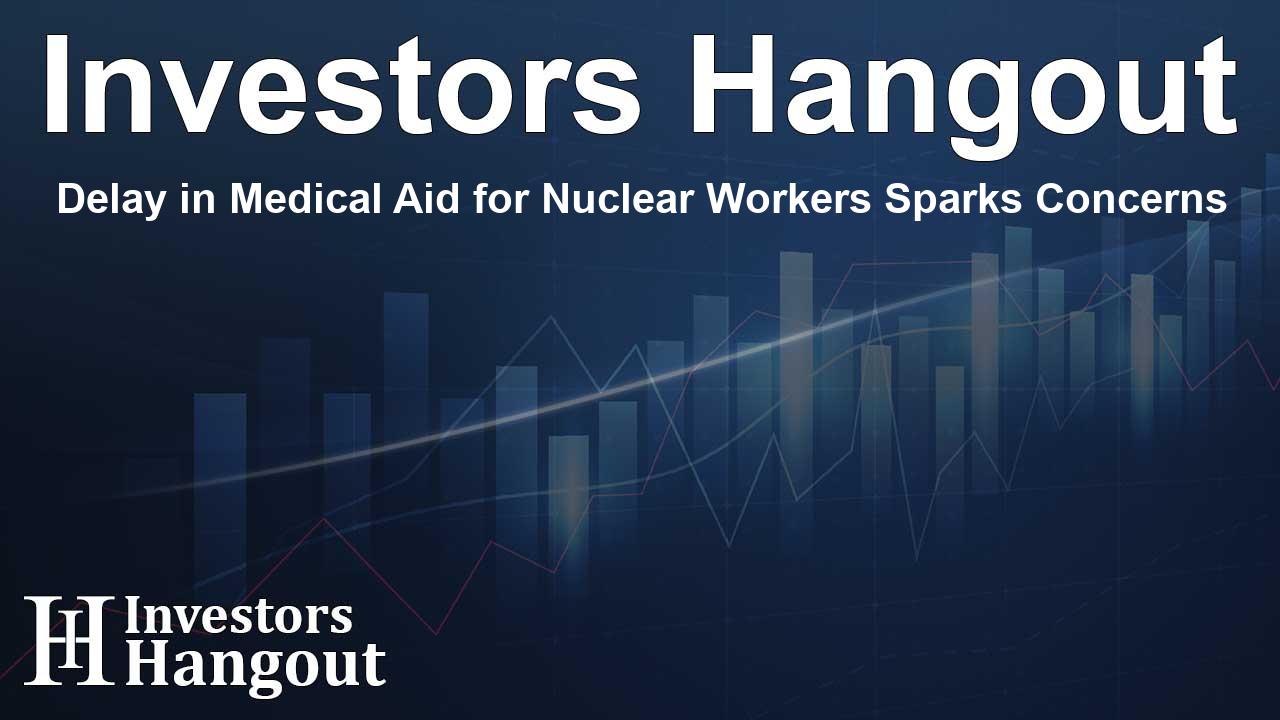Delay in Medical Aid for Nuclear Workers Sparks Concerns

U.S. Department of Health and Human Services Pauses Medical Aid Review
The U.S. Department of Health and Human Services (HHS) has paused the review of medical compensation claims for nuclear workers, leaving many individuals in a state of uncertainty. This development has caused considerable concern among those who have dedicated years of service in the nuclear sector.
HHS Halts Essential Expert Panels
As part of a broader restructuring effort introduced by the government, the HHS has suspended the expert medical bodies responsible for assessing the compensation claims of nuclear workers. This suspension has particularly impacted thousands of workers, including those who served at crucial facilities like the Y-12 National Security Complex. Many workers who face severe health issues have suddenly found themselves without a pathway to seek compensation and support.
Impact on Workers
One of the individuals affected is Steve Hicks, a former employee of Y-12. Currently battling multiple forms of cancer and nerve damage connected to radiation exposure, Hicks is advocating for the HHS to cover the medical expenses incurred by him and his fellow employees. His situation highlights the urgent need for clarity and support for nuclear workers facing health challenges due to their occupational hazards.
Background on Nuclear Workers Compensation
Historically, over 700,000 personnel have worked in the U.S. nuclear weapons complex, managing the mining, transport, and processing of radioactive materials. In 2000, the Energy Employees Occupational Illness Compensation Program Act was enacted to provide eligible Department of Energy (DOE) and Defense nuclear workers with a $150,000 lump-sum payment and medical assistance for radiation-related illnesses.
Suspension of Compensation Programs
The indefinite discontinuation of the Advisory Board on Radiation and Workers’ Health marks a significant setback. The board was essential in evaluating claims related to radiation exposure and its health implications. The suspension happened after the board's operations were halted on January 27, with the future of its existence remaining uncertain. If not renewed by the administration, it risks being permanently dissolved.
Restructuring and Its Consequences
The decision to pause medical compensation reviews correlates with a series of restructuring efforts within the HHS. Earlier moves included significant staffing reductions and program cuts aimed at efficiency. Moreover, HHS Secretary Robert F. Kennedy Jr. previously announced plans to eliminate thousands of jobs and shut down regional offices, deepening concerns about the department's capability to meet public health needs.
Effects on Public Health
These changes have serious implications for the management of disease outbreaks, approval of medical innovations, and access to health insurance for the nation's most vulnerable populations. With the Future of the advisory board in jeopardy, the prospects for fair compensation and health management for nuclear workers are becoming increasingly uncertain. Workers who relied on this safety net now lack critical support at a time when their needs are most pressing.
Frequently Asked Questions
What prompted the suspension of the medical aid review for nuclear workers?
The U.S. Department of Health and Human Services initiated a restructuring that led to the indefinite suspension of expert panels responsible for assessing compensation claims for nuclear workers.
How many nuclear workers have been affected by this change?
Over 700,000 individuals have historically worked in the U.S. nuclear weapons complex, many of whom are now uncertain about their compensation claims.
What are the implications of these suspensions?
Individuals affected may face challenges in receiving compensation and medical support, particularly those suffering from health conditions linked to radiation exposure.
What assistance programs are in place for nuclear workers?
The Energy Employees Occupational Illness Compensation Program Act provides eligible workers with compensation and medical coverage for radiation-related illnesses.
Who is advocating for nuclear workers during this crisis?
Many former workers, including Steve Hicks, are actively advocating for coverage of medical expenses and support for those affected.
About The Author
Contact Hannah Lewis privately here. Or send an email with ATTN: Hannah Lewis as the subject to contact@investorshangout.com.
About Investors Hangout
Investors Hangout is a leading online stock forum for financial discussion and learning, offering a wide range of free tools and resources. It draws in traders of all levels, who exchange market knowledge, investigate trading tactics, and keep an eye on industry developments in real time. Featuring financial articles, stock message boards, quotes, charts, company profiles, and live news updates. Through cooperative learning and a wealth of informational resources, it helps users from novices creating their first portfolios to experts honing their techniques. Join Investors Hangout today: https://investorshangout.com/
The content of this article is based on factual, publicly available information and does not represent legal, financial, or investment advice. Investors Hangout does not offer financial advice, and the author is not a licensed financial advisor. Consult a qualified advisor before making any financial or investment decisions based on this article. This article should not be considered advice to purchase, sell, or hold any securities or other investments. If any of the material provided here is inaccurate, please contact us for corrections.
